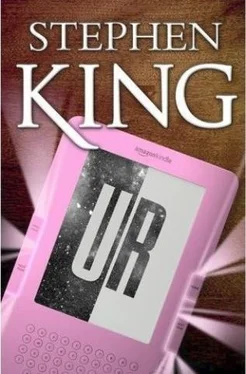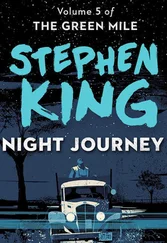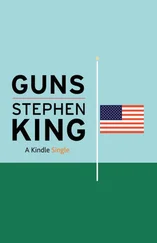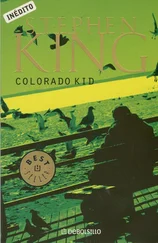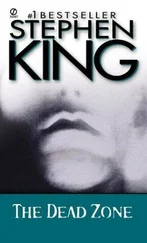I — Experimenting with New Technology
When Wesley Smith’s colleagues asked him—some with an eyebrow hoicked satirically—what he was doing with that gadget (they all called it a gadget), he told them he was experimenting with new technology, but that was not true.
He bought the gadget, which was called a Kindle, out of spite.
I wonder if the market analysts at Amazon even have that one on their product-survey radar , he thought. He guessed not. This gave him some satisfaction, but not as much as he hoped to derive from Ellen Silverman’s surprise when she saw him with his new purchase. That hadn’t happened yet, but it would. It was a small campus, after all, and he’d only been in possession of his new toy (he called it his new toy, at least to begin with) for a week.
Wesley was an instructor in the English Department at Moore College, in Moore, Kentucky. Like all instructors of English, he thought he had a novel in him somewhere and would write it someday. Moore College was the sort of institution that people call “a good school.” Wesley’s friend in the English Department (his only friend in the English Department) once explained what that meant. His friend’s name was Don Allman, and when he introduced himself, he liked to say, “One of the Allman Brothers. I play a mean tuba.” (He did not actually play anything.)
“A good school,” he said, “is one nobody has ever heard of outside a thirty-mile radius. People call it a good school because nobody knows it’s a bad school, and most people are optimists, although they may claim they are not. People who call themselves realists are often the biggest optimists of all.”
“Does that make you a realist?” Wesley once asked him.
“I think the world is mostly populated by shitheads,” Don Allman responded. “ You figure it out.”
Moore wasn’t a good school, but neither was it a bad school. On the great scale of academic excellence, its place resided just a little south of mediocre. Most of its three thousand students paid their bills and many of them got jobs after graduating, although few went on to obtain (or even try for) graduate degrees. There was a fair amount of drinking, and of course there were parties, but on the great scale of party-schools, Moore’s place resided a little to the north of mediocre. It had produced politicians, but all of the small-water variety, even when it came to graft and chicanery. In 1978, one Moore graduate was elected to the U.S. House of Representatives, but he dropped dead of a heart attack after serving only four months. His replacement was a graduate of Baylor.
The school’s only marks of exceptionality had to do with its Division Three football team and its Division Three women’s basketball team. The football team (the Moore Meerkats) was one of the worst in America, having won only seven games in the last ten years. There was constant talk of disbanding it. The current coach was a drug addict who liked to tell people that he had seen The Wrestler twelve times and never failed to cry when Mickey Rourke told his estranged daughter that he was just a broken-down piece of meat.
The women’s basketball team, however, was exceptional in a good way, especially considering that most of the players were no more than five-feet-seven and were preparing for jobs as marketing managers, wholesale buyers, or (if they were lucky) personal assistants to Men of Power. The Lady Meerkats had won eight conference titles in the last ten years. The coach was Wesley’s ex-girlfriend, ex as of one month previous. Ellen Silverman was the source of the spite that had moved Wesley to buy a Kindle from Amazon, Inc., the company that sold them. Well…Ellen and the Henderson kid in Wesley’s Introduction to Modern American Fiction class.
* * *
Don Allman also claimed the Moore faculty was mediocre. Not terrible, like the football team—that, at least, would have been interesting—but definitely mediocre.
“What about us?” Wesley asked. They were in the office they shared. If a student came in for a conference, the instructor who had not been sought would leave. For most of the fall and spring semesters this was not an issue, as students never came in for conferences until just before finals. Even then, only the veteran grade-grubbers, the ones who’d been doing it since elementary school, turned up. Don Allman said he sometimes fantasized about a juicy coed wearing a tee-shirt that said I WILL SCREW YOU FOR AN A, but this never happened.
“What about us? What about us ? Look at us, bro.”
“I’m going to write a novel,” Wesley replied, although even saying it depressed him. Almost everything depressed him since Ellen had walked out. When he wasn’t depressed, he felt spiteful.
“Yes! And President Obama is going to tab me as the new Poet Laureate!” Don Allman exclaimed. Then he pointed at something on Wesley’s cluttered desk. The Kindle was currently sitting on American Dreams , the textbook Wesley used in his Intro to American Lit class. “How’s that working out for you?”
“Fine,” Wesley said.
“Will it ever replace the book?”
“Never,” Wesley said. But he had already begun to wonder.
“I thought they only came in white,” Don Allman said.
Wesley looked at Don as haughtily as he himself had been looked at in the department meeting where his Kindle had made its public debut. “Nothing only comes in white,” he said. “This is America.”
Don Allman considered this, then said: “I heard you and Ellen broke up.”
Wesley sighed.
* * *
Ellen had been his other friend, and one with benefits, until four weeks ago. She wasn’t in the English Department, of course, but the thought of going to bed with anyone in the English Department, even Suzanne Montanari, who was vaguely presentable, made him shudder. Ellen was five-two (eyes of blue!), slim, with a mop of short, curly black hair that made her look distinctly elfin. She had a dynamite figure and kissed like a dervish. (Wesley had never kissed a dervish, but he could imagine.) Nor did her energy flag when they were in bed.
Once, winded, he lay back and said, “I’ll never equal you as a lover.”
“If you keep talking snooty like that, you won’t be my lover for long. You’re okay, Wes.”
But he guessed he wasn’t. He guessed he was just sort of…mediocre.
It wasn’t his less-than-athletic sexual ability that ended their relationship, however. It wasn’t the fact that Ellen was a vegan with tofu hotdogs in her fridge. It wasn’t the fact that she would sometimes lie in bed after lovemaking, talking about pick-and-rolls, give-and-gos, and the inability of Shawna Deeson to learn something Ellen called “the old garden gate.” In fact, these monologues sometimes put Wesley into his deepest, sweetest, and most refreshing sleeps. He thought it was the monotony of her voice, so different from the shrieks (often profane) of encouragement she let out while they were making love, shrieks that were similar to the ones she uttered during games, running up and down the sidelines like a hare (or a squirrel going up a tree), exhorting her girls to “Pass the ball!” and “Go to the hole!” and “Drive the paint!” Sometimes in bed she was reduced to yelling “Harder, harder, harder!” As, in the closing minutes of a game, she was often able to exhort no more than “Bucket-bucket- bucket !”
They were in some ways perfectly matched, at least for the short term; she was fiery iron, straight from the forge, and he—in his apartment filled with books—was the water in which she cooled herself.
Читать дальше
